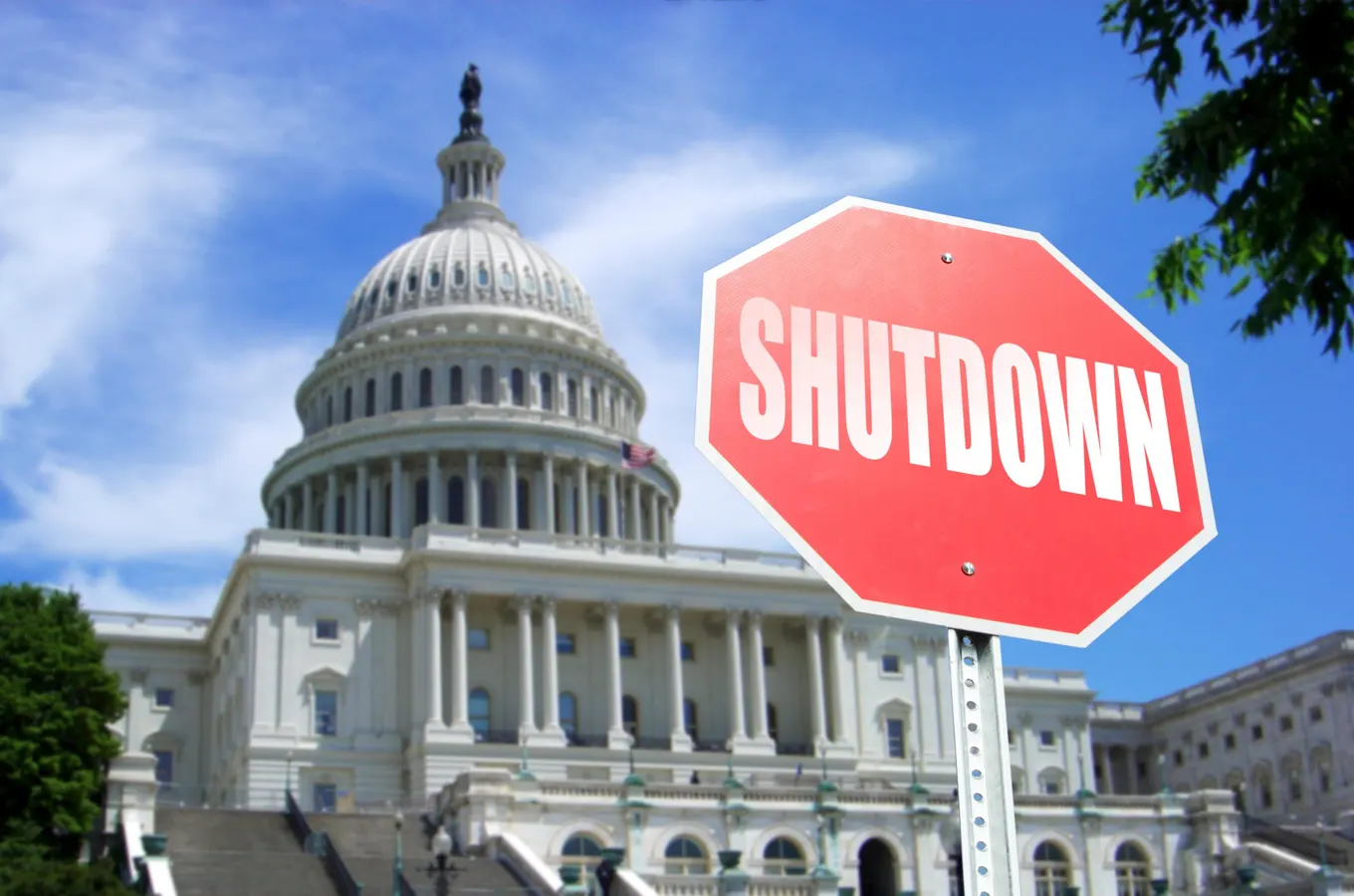By Contributor,Richard McGahey
Copyright forbes

Monday’s White House meeting on the budget shutdown also reflects a growing Constitutional dispute between the president and Congress.
Once again, we face a government shutdown, with federal spending authority expiring at the end of the federal fiscal year on Monday, which could force major parts of the government to suspend operations. But there’s more at stake: President Trump is trying to override Congress’ spending powers, a move many experts view as a core violation of the Constitution. That effort also underscores Congressional Democrats’ deep mistrust that any deal they agree to will actually be honored.
Why Shutdowns Are Becoming The New Normal
Although there is a formal budget and spending process authorized by 1974’s Congressional Budget Act, brinkmanship and shutdowns are in fact the “new normal” for Congressional spending. Congress has only fully used the formal process four times in the past 48 years, the last time in 1996.
Congress is supposed to set an overall budget including spending targets for the 12 appropriations subcommittees in each chamber authorizing spending within those limits. This year, the highly contentious “One Big Beautiful Bill Act” (OBBBA) set overall spending and tax cut targets, requiring large cuts in federal spending to pay for regressive tax cuts for the wealthy and corporations.
Even though Republicans control both Congressional chambers, legislation enacting many of OBBBA’s changes hasn’t passed. Some Republicans want even deeper spending cuts than OBBBA enacted while others facing re-election in swing districts and states fear voter backlash from further cuts. And even if the House could enact the cuts with their paper-thin majority, Senate Democrats can filibuster appropriations bills, preventing their enactment.
When the appropriations process deadlocks, as it increasingly does, Congress resorts to a “continuing resolution” (a “CR” in Capitol Hill parlance), a stopgap measure authorizing spending at previous levels. Hard-core anti-spending Republicans ordinarily oppose CRs, so they usually have been bipartisan, requiring Democratic votes and reflecting some Democratic priorities.
MORE FOR YOU
We are currently operating under a CR, but it expires on September 30, the end of the fiscal year, so spending for that year will no longer be legally authorized without a deal.
Congress’ Constitutional Spending Powers
That expiration is part of a larger and more consequential fight. For this now isn’t just another budget standoff to be reconciled with a grudging bipartisan agreement. It’s part of a larger constitutional clash between Congress and the President over who has the authority to decide how federal money is spent.
President Trump has made unprecedented claims about presidential powers over spending, saying the president can “impound” spending he doesn’t like, even though Article 1, Section 9 of the Constitution empowers Congressional control over spending: “No money shall be drawn from the Treasury, but in consequence of appropriations made by law.”
Conservative jurists have long supported this interpretation. For example, Supreme Court Justice William Rhenquist, while in the White House Office of Legal Counsel, said a presidential impoundment power “is supported by neither reason nor precedent.” And Brett Kavanaugh, one of Trump’s appointees to the Supreme Court, wrote when on the DC Circuit Court of Appeals, “the President may not decline to follow a statutory mandate or prohibition simply because of policy objections,” concluding “even the President does not have the unilateral authority” to reject Congressionally authorized spending.
Past presidents tried to impound particular spending. But after Richard Nixon tried to impound billions, Congress passed (and Nixon signed) the Impoundment Control Act of 1974, creating a process where the President could request withholding of specific authorized spending, but only with Congressional approval following rules established in the Act.
Trump’s Shutdown Is Fighting Congressional Spending Powers
Federal judges and the Government Accountability Office (GAO), empowered under the Act, have rejected Trump’s withholding of Congressionally-appropriated funds. The administration has responded by fighting on multiple fronts: appealing lower court injunctions to the Supreme Court while simultaneously taking legally questionable tactics to withhold spending.
At the center of this fight is Office of Management and Budget Director Russell Vought, a long-time advocate of extensive presidential powers over spending and Congress. Vought was a principal architect of the Heritage Foundation’s Project 2025, which outlined an aggressive platform for increasing presidential power at the expense of traditional checks and balances.
Vought claims the Impoundment Control Act is unconstitutional, and has acted on that belief as OMB head. The administration has blocked, delayed, and tried to cancel funds without using the Act’s procedures that require Congressional involvement. Currently, it is employing a “pocket recission”—withholding authorized funds until the fiscal year ends (which it does on Monday, September 30), effectively nullifying existing Congressional funding authorizations.
Law professor Zachary Price says reducing Congress’ potential checks on the president “would be misguided even if it weren’t also unconstitutional.” Price emphasizes not only the Constitution awarding Congress the power of the purse, but also the constitutional mandate that the president “faithfully execute” the laws, including legal limits on impoundment.
Democrats Don’t Trust Trump To Keep His Shutdown Promises
This larger fight casts a shadow over Democrats negotiating on the potential shutdown. Trump’s repeated unilateral actions make them doubt he will honor any deal to keep the government open.
Past contentious shutdowns were resolved with bipartisan agreements to keep the government open, and presidents abided by their terms. But Trump’s actions and claims of near-total authority unilateral presidential power over Congressionally authorized spending have created significant mistrust.
In exchange for Democratic support to avoid a shutdown, Democrats have demanded extending credits to pay for health insurance under the Affordable Care Act and restoring some Medicaid cuts passed earlier this year. They’ve also demanded any agreement be “ironclad and in legislation,” not subject to executive interpretations. Senate Majority Leader John Thune (R-SD) contends Democrats are “hijacking” negotiations, and should just approve a standard CR and follow the regular appropriations process.
And OMB’s Vought is threatening to permanently fire federal employees if a shutdown takes place, again with questionable legal authority. But as commentator Ryan Cooper points out, many Democrats think Vought and Trump “already have been doing tons of mass layoffs” even though “these firings have consistently found to be illegal.” So Vought’s threat may not move them.
The Constitutional Stakes At Monday’s Shutdown Meeting
As the government’s fiscal year funding authority expires, President Trump and Congressional leaders will meet at the White House. But a positive outcome is highly uncertain. The parties are split not only about spending, but on whether the president will honor any deal, given his administration’s position that he can make unilateral decisions about spending authorized funds.
The looming shutdown is thus more than a budgetary crisis; it foreshadows a constitutional one. Historically, Congress’ power to appropriate and direct spending has been a cornerstone of the Constitution, to provide a check on excessive presidential power. James Madison wrote in The Federalist Papers number 58 that Congressional control of “the purse” is a “powerful instrument” for controlling “all the overgrown prerogatives of the other branches of government.”
Trump’s withholding of funds and bypassing statutory restrictions on presidential action are putting our system of taxation, spending, and checks and balances in uncharted territory. If Monday’s meeting doesn’t find a compromise to avoid a shutdown, this issue is headed for the Supreme Court.
Editorial StandardsReprints & Permissions



